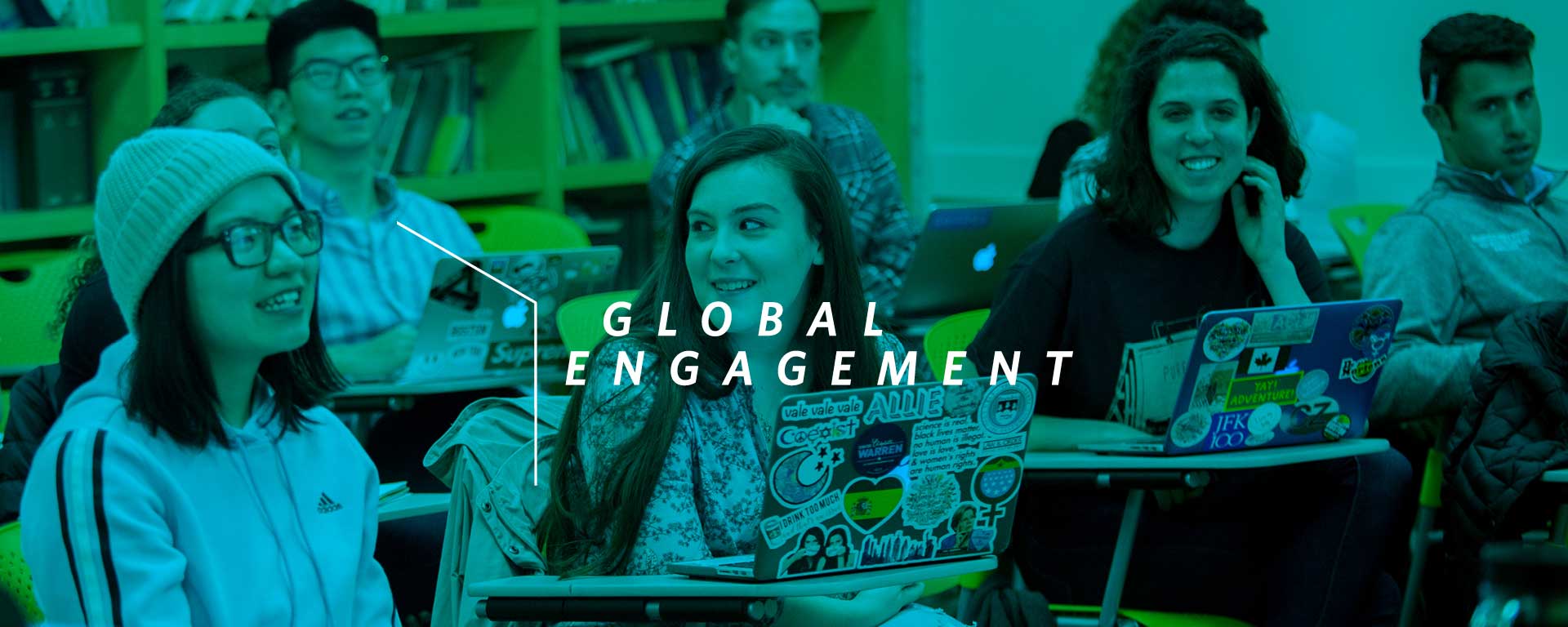Global Engagement
What are the roots of injustice? How do we heal a world that is more connected, yet more divided than ever?
The global engagement component of the Brandeis Core explores social, political, cultural and linguistic diversity in the United States and the world by focusing on three thematic areas listed below.
How to fulfill the global engagement requirements
Learning Goals
- Analyze the historical and contemporary relationships between and within societies, institutions, regions and peoples in English-speaking North America and in the world at large.
- Understand dynamics of social difference, including power, privilege, prejudice, discrimination, inequality, injustice, identities and political and environmental changes.
- Understand the histories, cultures, expressions and experiences of historically marginalized peoples in the U.S. and the world.
- Explore linguistic and cultural competence beyond one's own culture.
Faculty Committees
DEIS-US and DJW Committee
| Name | Department |
|---|---|
| Ilana Szobel Chair | Near Eastern and Judaic Studies |
| Jennifer Cleary | Theater Arts |
| Prakash Kashwan | Environmental Studies |
| Dorothy Kim | English |
| Jeffrey Lenowitz | Politics |
World Languages and Culture Committee
| Name | Language / Culture |
|---|---|
| Hollie Harder, Co-Chair | French |
| Xiwen Lu, Co-Chair | Chinese |
| Sabine von Mering | German |
| Alisha Cardwell | Study Abroad |
| Irina Dubinina | Russian |
| Hisae Fujiwara | Japanese |
| Caitlin Gillespie | Greek, Latin |
| Elena Gonzalez Ros | Spanish |
| Sara Hascal | Hebrew |
| Ellen Kellman | Yiddish |
| Hanan Khashaba | Arabic |
| Eun-Jo Lee | Korean |
| Vinodini Murugesan | English |
| Paola Servino | Italian |
| Jian Wei | Chinese |
